The presidents of Latvia and Estonia, speaking to the Financial Times, say Europe must better prepare for what they see as an inevitable military confrontation with Russia by dramatically increasing defense spending, introducing a “defense tax” and a return to conscription.
Edgars Rinkēvičs, Latvia’s head of state, said that NATO’s European countries will have to return to “Cold War-era spending” levels and reintroduce compulsory military service to ensure the necessary numbers of trained manpower are available to defend the Alliance.
While acknowledging that compulsory service would be unpopular and that military chiefs, including his own, prefer to have fully professional forces, he says that most countries are unable to recruit sufficient levels of contract personnel.
“There is a need for serious discussion about conscription,” Rinkēvičs said.
The so-called “peace dividend” when the Cold War “ended” led all but six of NATO’s 29 European members to abandon military conscription, which they viewed as an unnecessary expense in the early 1990s, along with the continual diversion of funds from defense spending and reductions in capability.
Overall defense spending among European NATO countries increased by only around 20 percent between 1999 and 2021 compared with a 66 percent rise by the US, a jaw-dropping 292 percent increase by Russia, and a truly staggering 592 percent increase by China.
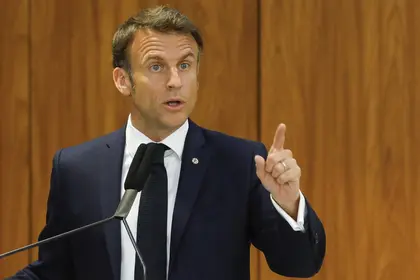
WSJ: Macron Urges Europe to Toughen Stance Against Putin, Allies Resist
To say that the EU had become somewhat complacent by assuming that long-term peace and stability was assured, given those comparisons, is an understatement. Even Russia’s 2014 annexations of parts of Ukraine did nothing to disturb “pax Europa,” but the 2022 full-scale invasion has belatedly opened NATO’s leaders’ eyes to the threat.
There is a growing concern that Moscow could undermine NATO’s mutual defense clause using hybrid attacks against the Baltic states on its eastern flank unless alliance members show increased resolve.
“Nobody wants to fight,” Rinkēvičs said. “But the problem is nobody wants to be invaded either. And nobody wants to see Ukraine happening here.”
Alar Karis, his Estonian counterpart, said separately that Europe should aim to match US defense spending and introduce a special tax that would help fund military purchases across all Alliance members, equivalent to three percent of the collective GDP.
“It’s one way to directly put money to defense and for people to understand where this money goes,” Karis said.
NATO has currently laid down a two percent of GDP requirement for defense spending for all members. Until the invasion of Ukraine, most members barely paid lip service to that goal. Since 2022 the three Baltic nations, along with Poland, have rapidly boosted their defense spending.
Karis echoed recent comments by former US President Donald Trump that Europe should take greater responsibility for its share of collective defense. He said that the US accounts for 68 percent of NATO spending with its 2023 military budget of $860 billion compared with $404 billion by Europe and Canada.
“It would be better for us if these figures were more equal,” Karis said. “It is our defense, and we should do it for ourselves.”
In January the UK’s army chief, General Patrick Sanders, said that society needs to be prepared for war with Russia, and because of this it would be reasonable to consider some form of conscription to have a fully trained reserve on hand. He also said that rather than the UK government’s plans to reduce the size of its army to 73,000 it should be increased to 120,000, likening the current situation with Russia to that in the 1930s when everyone underestimated the threat from Hitler.
Latvia, Lithuania and Sweden have recently reintroduced conscription, while it was never abolished in Estonia, Finland and Norway. Denmark has conscription for 4,200 men over 18 each year by lottery and has begun discussions on increasing that to 15,000 and including women too.
Norway brought back conscription in 2016 with all 18-year-olds having to register for military service, of which around 15 percent are selected to complete 19 months of service. Sweden introduced partial conscription in 2018. In early 2023 it announced it was expanding conscription to include adult civilians into its emergency services.
Other European countries with conscription include Switzerland, where every male serves at least 245 days of service spread over 11 years following 21 weeks of training, Greece has 12 months conscription for men between 19 and 45, and in Austria all men over 18 undergo six months military training.
Germany suspended military service in 2011, but retained the right to reinstitute call-up if there is a defense need. Defense Minister, Boris Pistorius, has said: “Abolishing it [conscription] was a mistake and could demonstrate the importance of these institutions for the functioning of our society.”
In Romania, the Defense Ministry backed a draft bill proposing that all military-aged Romanians should report for military service within 15 days of a general mobilization.
In France, President Emmanuel Macron introduced the Universal National Service in 2019, which enables young people to volunteer for a month and serve their country. The French government is now considering making this compulsory.
Italy’s Deputy Prime Minister, Matteo Salvini, has said that a draft would provide “a year of teaching the rules, good manners and duties that make good citizens.”
Portugal has voluntary service for 18-30-year-olds who wish to participate with conscription being theoretically possible if there aren’t sufficient volunteers.
Spain abolished conscription in 2001 but retains the right to mobilize citizens aged between 19-25 years in the event of a national emergency.
You can also highlight the text and press Ctrl + Enter


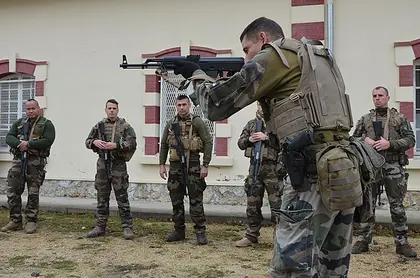
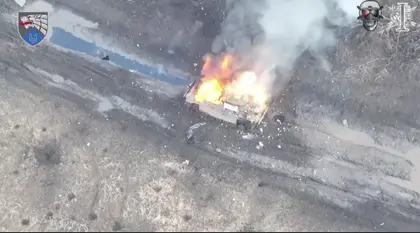
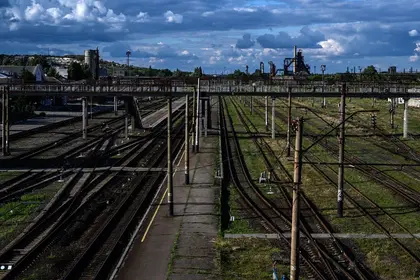
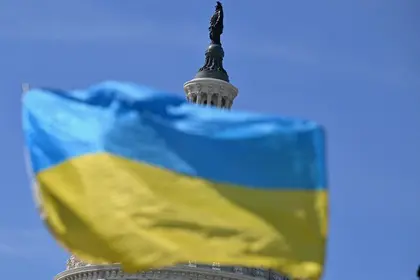
Comments (0)